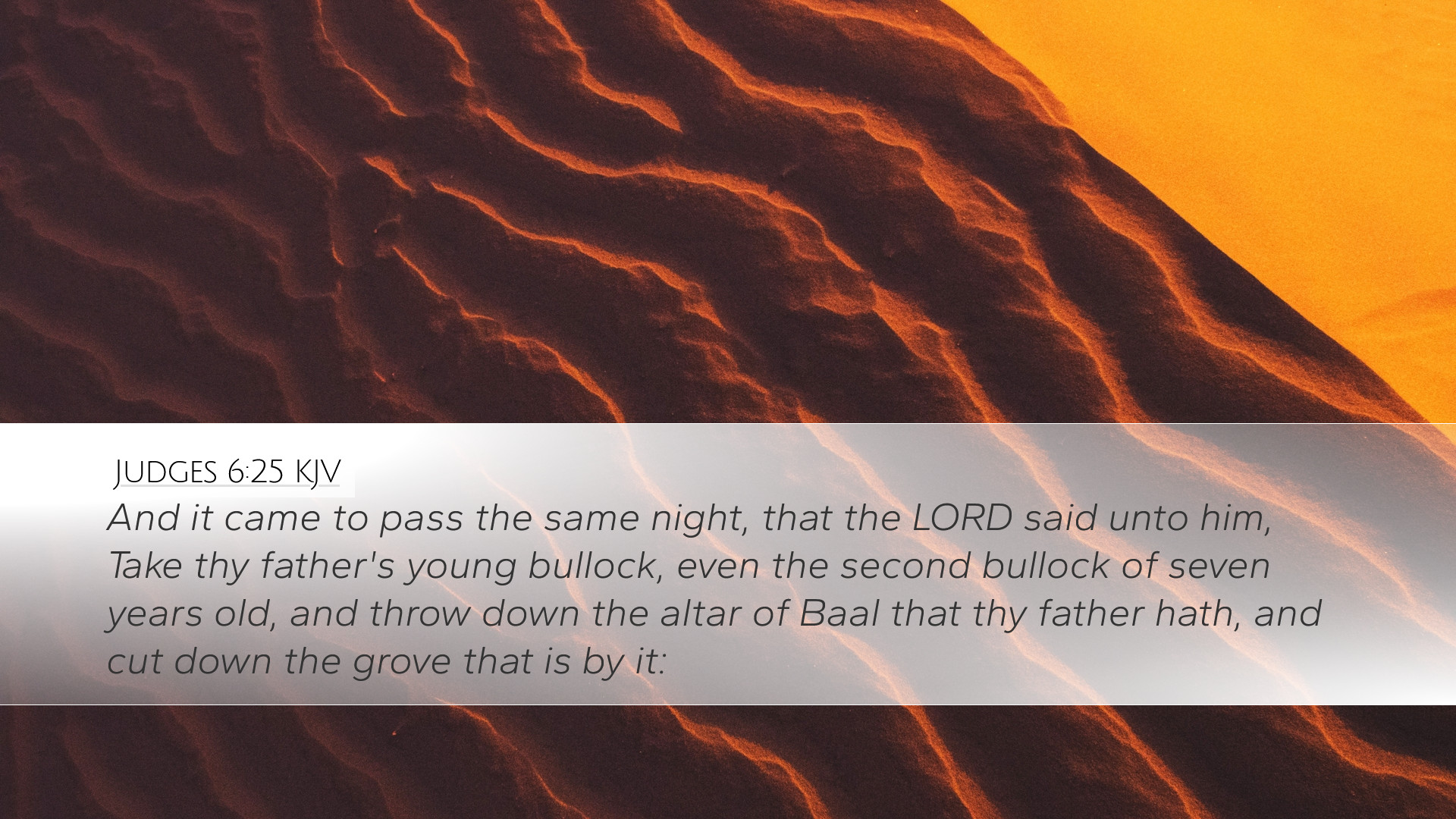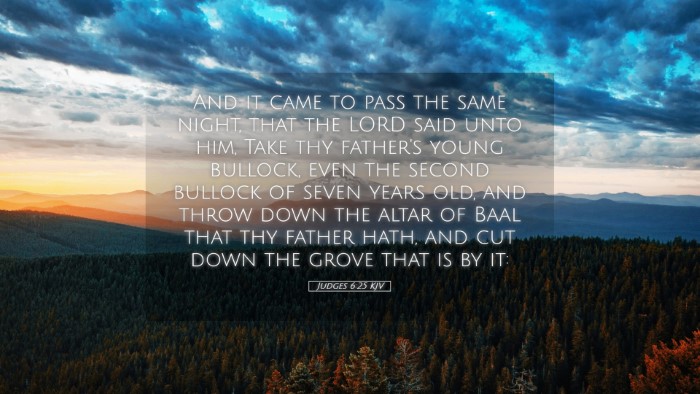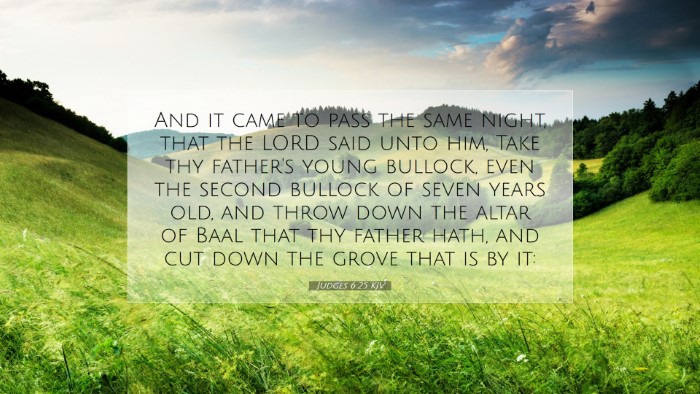Bible Commentary on Judges 6:25
Scripture Reference: Judges 6:25 (ESV) - "That night the LORD said to him, 'Take your father's bull and the second bull seven years old and pull down the altar of Baal that your father has and cut down the Asherah that is beside it.'
Introduction
This verse marks a pivotal moment in the narrative of Gideon, who is chosen by God to deliver Israel from the oppression of the Midianites. The command given to Gideon carries profound theological and practical implications concerning faith, obedience, and the call for reformation.
Theological Insights
In examining Judges 6:25, we uncover several layers of meaning through insights from respected public domain commentaries. Each commentary adds depth to our understanding of God's instruction to Gideon.
Matthew Henry's Commentary
Matthew Henry emphasizes the significance of God's command to destroy the altar of Baal. He notes that the act of pulling down the altar not only signifies a rejection of idolatry but also highlights a call for spiritual cleansing within Israel. Henry points out that the altar of Baal represented the deep-rooted idolatrous practices among the Israelites, and Gideon's initial task foreshadows the greater deliverance that God will execute through him.
- The Importance of Obedience: Henry stresses that obedience to God's instructions is essential for spiritual renewal. Gideon's willingness to follow through with this command demonstrates his faith, even in the face of possible familial and societal backlash.
- Confrontation of Idolatry: This command serves as a reminder that God demands the hearts of His people, free from the competing claims of other gods.
Albert Barnes' Notes on the Bible
Albert Barnes provides a thorough examination of the cultural context surrounding the directives given to Gideon. He notes that the Asherah was a representation of fertility worship that was pervasive in Canaanite culture.
- Cultural Disruption: Barnes articulates that by commanding Gideon to demolish both the altar of Baal and the Asherah, God instructed him to challenge the prevailing religious practices that had corrupted Israel's worship.
- Symbolic Actions: The physical act of tearing down these altars can be seen as a necessary precursor to spiritual revival. Barnes emphasizes that true reformation often necessitates bold actions against longstanding traditions of sin.
Adam Clarke's Commentary
Adam Clarke delves into the specifics of the sacrificial practices associated with the bull and the symbolic meanings embedded within this passage.
- Significance of the Bull: Clarke explains that the choice of the bull signifies the seriousness of the occasion; it was a significant sacrificial animal, symbolizing dedication and the cost of obedience.
- Risk of Obedience: Gideon's act comes with considerable risk. Clarke discusses how the dismantling of the altars was a public act that could have drawn severe punishment from both his family and the local community
- Divine Assurance: Clarke ultimately assures the reader that God’s command comes with a promise of protection and support, evoking the belief that when one acts in accordance with God’s will, they are covered by His grace.
Practical Applications
The instructions given to Gideon carry important lessons for contemporary believers, especially pastors, students, and theologians:
- Addressing Idolatry: Modern readers are called to examine their own lives and communities for the presence of ‘idols’ that can take precedence over a proper relationship with God.
- Courage in Reform: The story of Gideon urges individuals to have the courage to confront idolatry and sin within their spheres of influence.
- Obedience despite Fear: Just as Gideon acted despite the potential dangers, believers are reminded to trust in God's plan, even when it leads them into challenging circumstances.
Conclusion
In summary, Judges 6:25 is laden with profound implications for understanding God's call to purify His people. The insights gleaned from the commentaries provide a framework for interpreting Gideon's actions not merely as historical events, but as lessons in faith, obedience, and the transformative power of God. As we consider these insights, may we be inspired to act decisively against the idols in our own lives, fostering a deeper relationship with God through our faithfulness and repentance.


